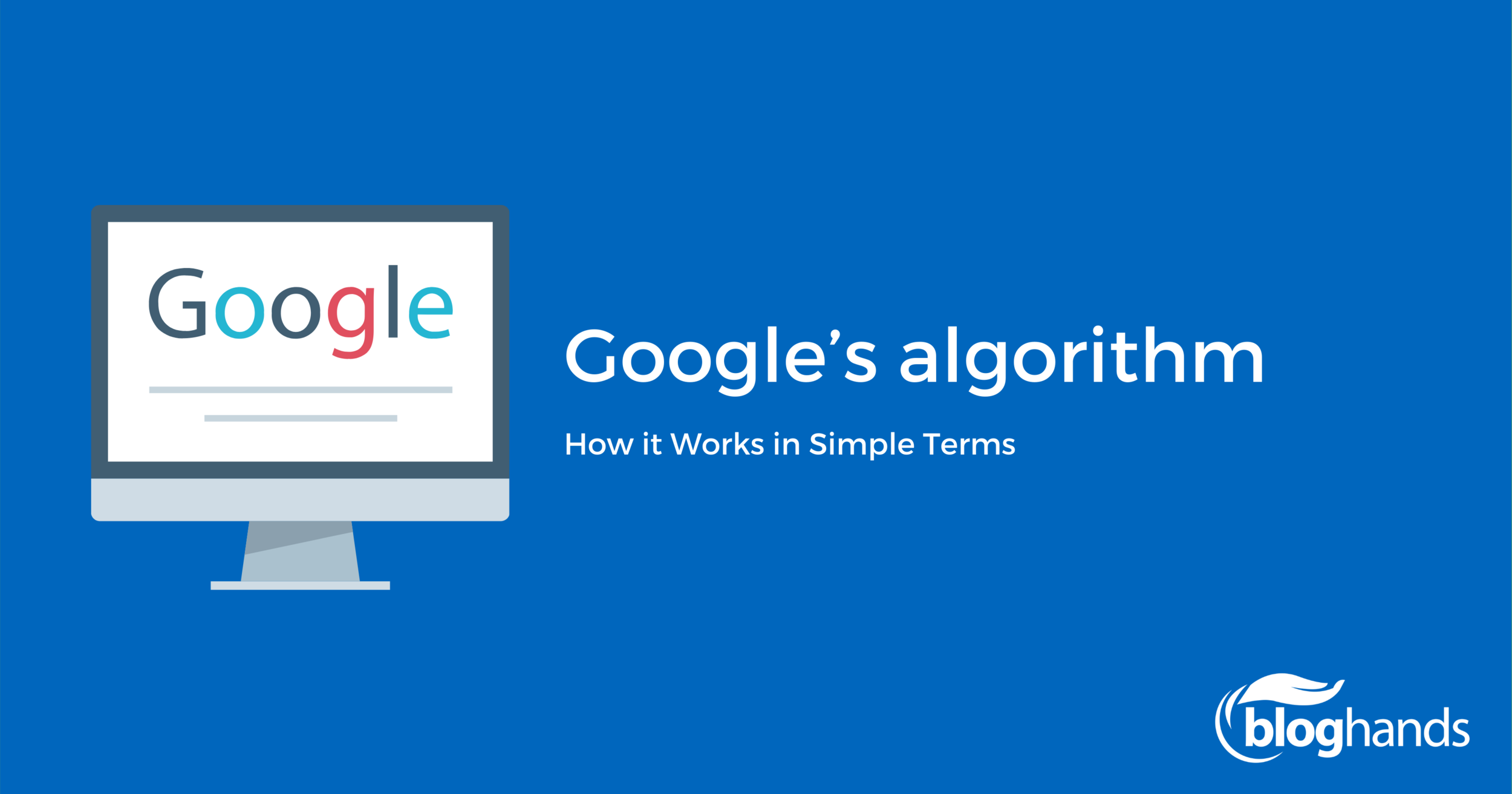How Google’s Search Algorithm Works in Simple Terms
For the typical small business owner, how Google’s search algorithm works is one of life’s great mysteries. Your web pages either appear at the top of the results or where no one can find them. So, how does Google rank web pages?
Google analyzes web pages and adds them to its massive search index. Then, when you perform a search query, complex search algorithms sort through the index to find the most relevant results. The search algorithms use over 200 factors to rank web pages.
Overview of How Google’s Search Algorithm Works
Before Google launched its search engine, search engines ranked web pages based on keyword usage. For example, if you searched for “small business,” the pages that contained the most mentions of that phrase would appear at the top of the search results.
Google’s original search algorithm provided more relevant results by assigning each page a PageRank.
PageRank measured the relevance of a page based on the importance of its backlinks. Backlinks from trusted sites helped web pages achieve higher search rankings.
The founders of Google developed PageRank in 1996. Twenty-five years later, Google now uses a variety of algorithms to rank web pages.
Google’s search engine relies on three main functions:
1. Crawling
Crawling is the process of analyzing web pages. Google uses programs called spiders to crawl web pages and read the code contained in each page. The spiders essentially view and record web pages.
Web admins submit XML sitemaps to Google and other search engines. The XML file lets search engines know which pages to crawl.
2. Indexing
After crawling web pages, Google adds them to its index. Indexing involves storing and organizing the information obtained by the search spiders.
3. Ranking
Google’s search algorithms then rank web pages. The algorithms compile a list of relevant results from the index based on the search query.
Instead of relying on just keywords and backlinks, Google’s search algorithms analyze over 200 search signals (ranking factors).
What Factors Influence Google Search Rankings?
Image source: https://www.google.com/search/howsearchworks/
Google groups search signals into the following categories:
Meaning of the query
Relevance of web pages
Quality of the content
Usability of the web pages
Context and settings
Before searching its index for relevant web pages, Google’s search algorithms attempt to understand the meaning of the search query. The search engine tries to establish what you are looking for.
The algorithms now use machine learning and artificial intelligence. These technologies help detect spelling mistakes and establish the intent of the search query.
The algorithms also try to decide what category of information the user is searching for. For example, Google’s search engine can analyze whether the query is seeking fresh content, such as the latest weather report or sports scores.
After determining the intent behind the search query, the search algorithms begin finding relevant web pages. The algorithms analyze the content of web pages stored in the search index.
If a web page has not been crawled and indexed by Google it cannot show up in the search results.
How Does Google Rank Web Pages?
The first set of data that the algorithms review is keyword usage. The algorithms find web pages that contain the same keywords used in the search query.
Google’s search algorithms also try to determine which web pages offer the most reliable information. Search engines look for web pages that demonstrate trust, authority, and expertise.
Along with keywords, the following factors influence search rankings:
Backlinks
High-quality content
Mobile-friendly web design
Page load speed
User engagement
Consistent business listings
Domain age
Backlinks remain an important part of search engine algorithms. Google still uses PageRank to analyze the quality of links pointing to your web pages.
Quality backlinks come from websites with high domain authority. This includes the top brands in each industry, the leading bloggers, and authoritative sites that people tend to turn to for helpful information.
Google’s algorithms have also become increasingly sophisticated at analyzing the quality of content on a web page. Google penalizes sites that do not comply with its webmaster guidelines, which are designed to prevent webmasters from attempting to deceive users or trick search engines.
How Does Web Page Performance Impact Search Rankings?
After analyzing keywords, backlinks, and other on-page SEO factors, search engines analyze the performance of the page. Over 50% of Internet traffic comes from mobile devices. To give search users the best experience possible, the highest-ranking web pages load quickly and work on mobile devices.
Google recommends using a responsive design that automatically adjusts content to fit the screen size. Page load speed also impacts user experience, especially on smartphones and tablets.
The ideal load time is between one and two seconds. Web pages that take longer than two seconds to load lose visitors. Common causes of slow loading times include slow servers and using too many plugins and scripts.
Google’s algorithms also review user engagement through an AI tool called “RankBrain.” Some of the main user engagement metrics include:
Click-through rate (CTR)
Bounce rate
Time on site
The click-through rate indicates how many people clicked on a search result. Bouncing refers to a visitor's decision to leave a website after viewing only one page. Time on site refers to the amount of time spent on a page.
Web pages with higher engagement rates are likely to provide more relevant information, as users spend more time on the page.
Google also wants to display web pages that are the most credible, which involves checking the consistency of online citations and business listings. Use your business name, address, and phone number (NAP) consistently across all online profiles and listings.
Conclusion
Understanding how Google’s search algorithms work may help with your SEO practices. To achieve higher rankings, you need to focus on proper keyword usage, backlinks, and high-quality content.
You also need to ensure that your web pages load quickly and work on all types of devices. However, none of it matters if Google does not crawl and index your pages. Remember to submit your sitemap after creating or updating a page.


